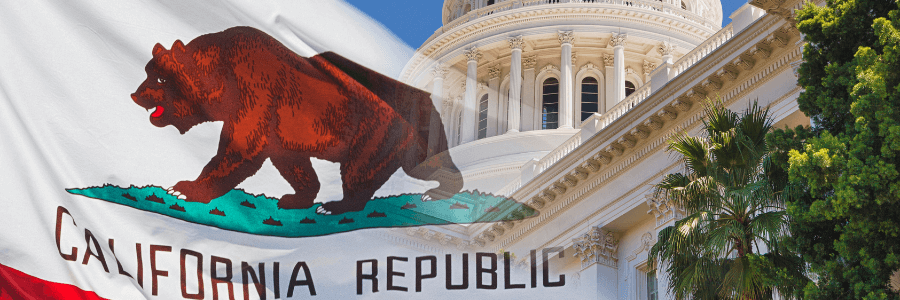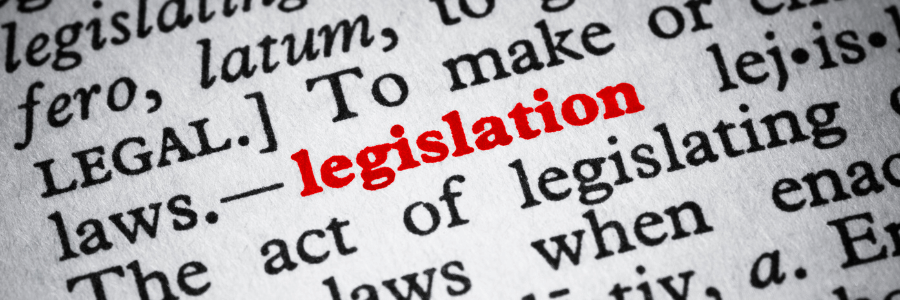Legislative Monitor for California – January 2025

California Governor Gavin Newsom signed into law Senate Bill No 988, the Freelance Worker Protection Act (FWPA), which became effective January 1, 2025.
The FWPA impacts all employers who retain a freelance worker to provide professional services. Here’s what employers need to know:
- Written Contracts: Employers must provide a written contract for any freelance work valued at $250 or more.
- Timely Payments: Employers must pay freelance workers by the date specified in the contract, or within 30 days of service completion if no date is specified.
- Record Keeping: Employers must retain copies of all freelance contracts for at least four years.
- Anti-Retaliation Protections: The FWPA prohibits employers from retaliating against freelance workers who exercise their rights under the Act.
- Enforcement and Penalties: Freelance workers or public prosecutors can bring civil actions to enforce the FWPA.
Next Steps: Employers should review their current practices, and ensure compliance with the new requirements.
► More information: California Governor Signs Freelance Worker Protection Act | Ogletree Deakins
Paid Family Leave Changes
Effective January 1, 2025, California employers will no longer be able to require employees to use up to two weeks of paid time off (PTO) or vacation leave before receiving state-paid family leave benefits.
Here’s What You Need to Know:
- This change does not prohibit employees from voluntarily using their already accrued company-provided PTO benefits to supplement their PFL benefits, as long as the amount received from both sources does not exceed their normal pay.
- This change does not impact San Francisco’s Paid Parental Leave Ordinance (SFPPLO). Employers must provide supplemental compensation to employees on leave for bonding with a child, in addition to any compensation they receive from California Paid Family Leave (PFL).
- This change under A.B. 2123, aims to provide more coverage for employees taking leave without having to exhaust their PTO or vacation time.
Next Steps: Employers should review their current practices and update their policies accordingly.
► More information: California Eliminates Employers’ Ability to Require Employees to Use Vacation Before They Receive State Paid Family Leave Benefits | Littler
Expanded Sick Leave Use and Changes to Unpaid Leave
California’s governor signed two significant bills, AB 2499 and SB 1105, amending the Healthy Workplaces, Healthy Families Act (HWHFA), which is the state’s paid sick leave law. These amendments aim to provide more support for employees during the aftermath of violence and other crimes, ensuring they have the necessary time and resources to recover.
- Expanded Eligibility for “Safe” Leave: Paid sick leave can now be used not only by employees who are victims of domestic violence, sexual assault, or stalking, but also by those who are victims of other crimes. Additionally, employees can use this leave if their family members are victims.
- Broader Reasons for Leave: The bill expands the reasons for which employees can take paid sick leave. These include seeking medical attention, obtaining services from a shelter or crisis center, participating in safety planning, relocating, and attending legal proceedings related to the crime.
- Transfer of Unpaid Leave Protections: Unpaid leave protections for victims, previously under the Labor Code, are now part of the Fair Employment and Housing Act (FEHA). This change ensures that these protections are enforced by the Civil Rights Department.
Employers must inform employees of their rights under these new provisions at the time of hiring, annually, upon request, and whenever an employee notifies the employer that they or a family member is a victim.
Next Steps: Employers should update their sick leave policy to include expanded leave requirements.
► More information: California Expands Paid Sick Leave Uses for Crime Victims and Agricultural Employees, and Changes Unpaid Leave Standards for Victims | Littler
California Worker Freedom from Employer Intimation Act
Governor Gavin Newsom signed into law SB 399, known as the California Worker Freedom from Employer Intimidation Act. This new law, effective January 1, 2025, bans employers from holding mandatory “captive audience” meetings. These are employer-sponsored meetings where attendance is required, and the topics often include religious or political matters, such as discussions about unionization.
Key Provisions of SB 399:
- Prohibition on Mandatory Meetings: Employers cannot require employees to attend meetings or listen to communications where the employer expresses opinions on religious or political matters.
- Employee Protections: Employees are protected from any adverse actions, such as discharge or discrimination if they refuse to attend these meetings.
- Enforcement and Penalties: The law will be enforced by the Division of Labor Standards Enforcement, and employees can seek injunctive relief and damages for violations. Employers face a civil penalty of $500 per employee for each violation.
This legislation aims to protect workers from being coerced into listening to their employer’s views on sensitive topics, ensuring a more neutral and respectful workplace environment.
Next Steps:
Employers should train their management team on the expectations and limitations of meetings.
► More information: Mandatory Captive Audience Meetings Are Banned in California in 2025 | National Law Review
To stay up to date on legislative developments, subscribe to our blog using the form below.

